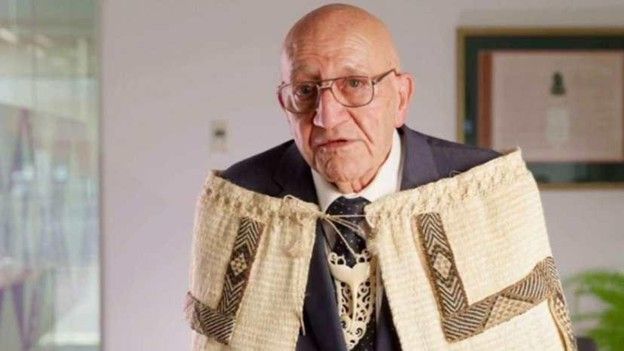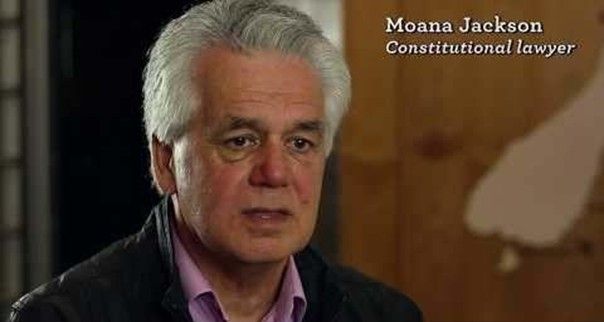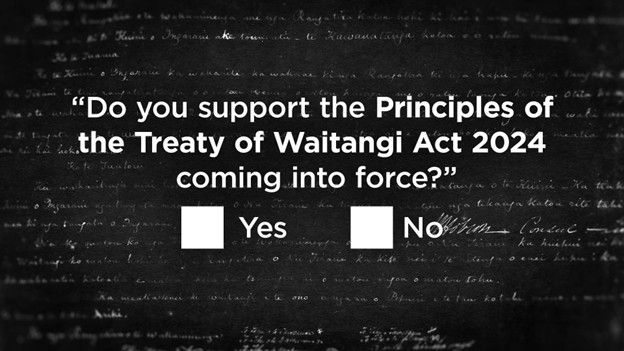Challenging the Treaty Principles Bill
\

The recent introduction of the Treaty Principles Bill to Parliament by ACT leader David Seymour has reignited debate about the enduring significance of Te Tiriti o Waitangi in today's New Zealand. This foundational agreement, signed in 1840, established the relationship between the Crown and Māori, emphasizing key principles such as partnership, protection, and Māori self-determination (rangatiratanga).
Seymour\'s bill, which aims to codify Treaty principles into law, has drawn sharp criticism from legal scholars and Māori leaders, who express concerns about its potential impact on existing Treaty settlements and the ongoing process of reconciliation.
Furthermore, Seymour\'s acknowledgment of Ngāi Tahu\'s rangatiratanga over much of the South Island has raised questions about the consistency and practical implications of his proposed legislation, particularly regarding its application across diverse Māori contexts. This debate underscores the ongoing importance of Te Tiriti o Waitangi in shaping New Zealand\'s identity and navigating the complex relationship between the Crown and Māori in the 21st century.
Te Tiriti & Ngāi Tahu Sovereignty Debate

The Ngāi Tahu sovereignty debate intensified following David Seymour\'s acknowledgment of the iwi\'s rangatiratanga over most of the South Island. Ngāi Tahu, the largest Māori iwi in the South Island, holds rangatiratanga over more than 80% of Te Waipounamu (the South Island).
This recognition has raised questions about the implications for Seymour\'s Treaty Principles Bill and its potential impact on existing Treaty settlements.
Ngāi Tahu has strongly criticized Seymour and the ACT party, describing their approach as \"naïve\" and \"politically clumsy\". The iwi argues that the bill misconstrues history and is a direct attack on tino rangatiratanga, which is guaranteed to iwi and hapū in Article II of the Treaty.
What are the Criticisms of the Principles Bill?

Legal experts, including senior members of the King\'s Counsel, have voiced strong opposition to David Seymour\'s Treaty Principles Bill.
Over 40 KCs have written to the Prime Minister and Attorney-General, expressing \"grave concerns\" about the bill\'s substance and its wider implications for New Zealand\'s constitutional arrangements.
Key criticisms include:
● The bill \"seeks to rewrite the Treaty itself\" and would cause significant legal confusion and uncertainty
● It is inconsistent with the principles of partnership, reciprocity, active protection, and the Article 2 guarantee of rangatiratanga.
● The Waitangi Tribunal has recommended abandoning the bill, finding it in breach of multiple treaty principles.
● Dr. Carwyn Jones, a senior law lecturer, argues that Seymour\'s acknowledgment of Ngāi Tahu\'s rangatiratanga contradicts his refusal to accept court judgments on Treaty Principles.
Te Tiriti: Judicial Interpretations of Treaty Rights

Judicial interpretations of Treaty rights have played a crucial role in shaping New Zealand\'s legal landscape, particularly in relation to the Treaty of Waitangi.
The courts have recognized that while they cannot directly enforce the Treaty itself, they can interpret legislation according to Treaty principles where appropriate.
This approach has led to the development of key concepts such as:
● The principle of partnership between the Crown and Māori
● The duty of active protection of Māori interests by the Crown
● The obligation to act in good faith
However, the proposed Treaty Principles Bill seeks to limit judicial interpretation by defining the principles in statute, potentially restricting the courts\' ability to develop Treaty jurisprudence.
This has raised concerns among legal experts about the bill\'s impact on the constitutional role of the judiciary and the protection of Māori rights under the Treaty.
Te Tiriti: A Māori Rights Champion

Moana Jackson (1945-2022) was a prominent Māori lawyer and advocate who made significant contributions to constitutional law and indigenous rights in New Zealand. He argued that the New Zealand criminal justice system was discriminatory towards Māori and led work on constitutional reforms.
Jackson\'s influential 1988 report was the first to propose an alternative justice system for Māori, an idea that continues to shape legal policy.
Jackson\'s work focused on upholding Te Tiriti o Waitangi (the Treaty of Waitangi) and advancing Māori self-determination. He co-founded Ngā Kai Whakamarama i Ngā Ture (the Māori Legal Service) in 1987 and played a crucial role in drafting the United Nations Declaration on the Rights of Indigenous Peoples.
Jackson consistently challenged the notion that Māori had ceded sovereignty, arguing instead that Te Tiriti envisioned \"different spheres of influence\" between Māori rangatiratanga and Crown governance.
His legacy continues to influence contemporary discussions on constitutional transformation and Māori rights in Aotearoa New Zealand.
Te Tiriti: The Implications Of Treaty Settlements

The Treaty Principles Bill\'s potential impact on existing Treaty settlements has raised significant concerns. Seymour claims the bill would not \"mess with Treaty settlements\"
but legal experts argue it could have far-reaching implications. The Waitangi Tribunal found that the bill, if enacted, would impact Treaty settlements and undermine social cohesion.
Specifically:
● The bill could limit Māori rights and Crown obligations established in previous settlements.
● It may hinder Māori access to justice in enforcing settlement terms.
● The proposed legislation could affect the interpretation of Treaty settlement Acts, potentially altering their practical implementation.
● Ngāi Tahu\'s settlement, which acknowledges their rangatiratanga over much of the South Island, could face legal challenges under the new principles.
These potential implications highlight the complex interplay between proposed legislative changes and existing Treaty settlements, underscoring the need for careful consideration of the bill\'s long-term effects on Māori-Crown relations.
The Principles Bill Second Reading Prospects

David Seymour\'s Treaty Principles Bill faces significant obstacles in reaching a second reading. Prime Minister Christopher Luxon has ruled out National supporting the bill beyond the select committee stage, effectively blocking its progression.
All parties except ACT have committed to voting the bill down at the second reading, which would prevent it from becoming law.
Despite this, Seymour remains determined, arguing that the bill is \"foundational to solving our other problems\".
However, the lack of support from coalition partners and strong opposition from other parties make it highly unlikely that the bill will advance past its current stage in the legislative process.